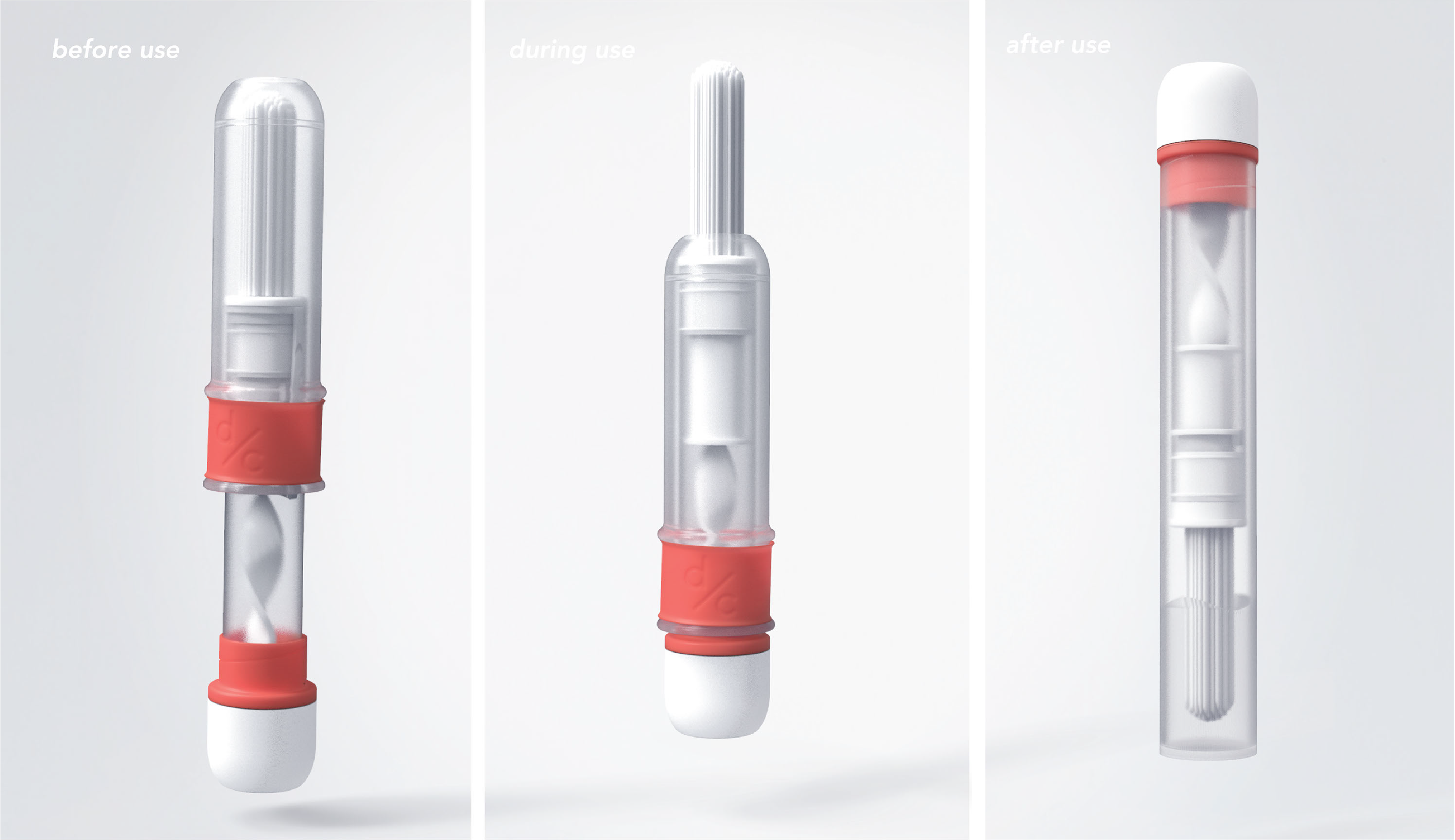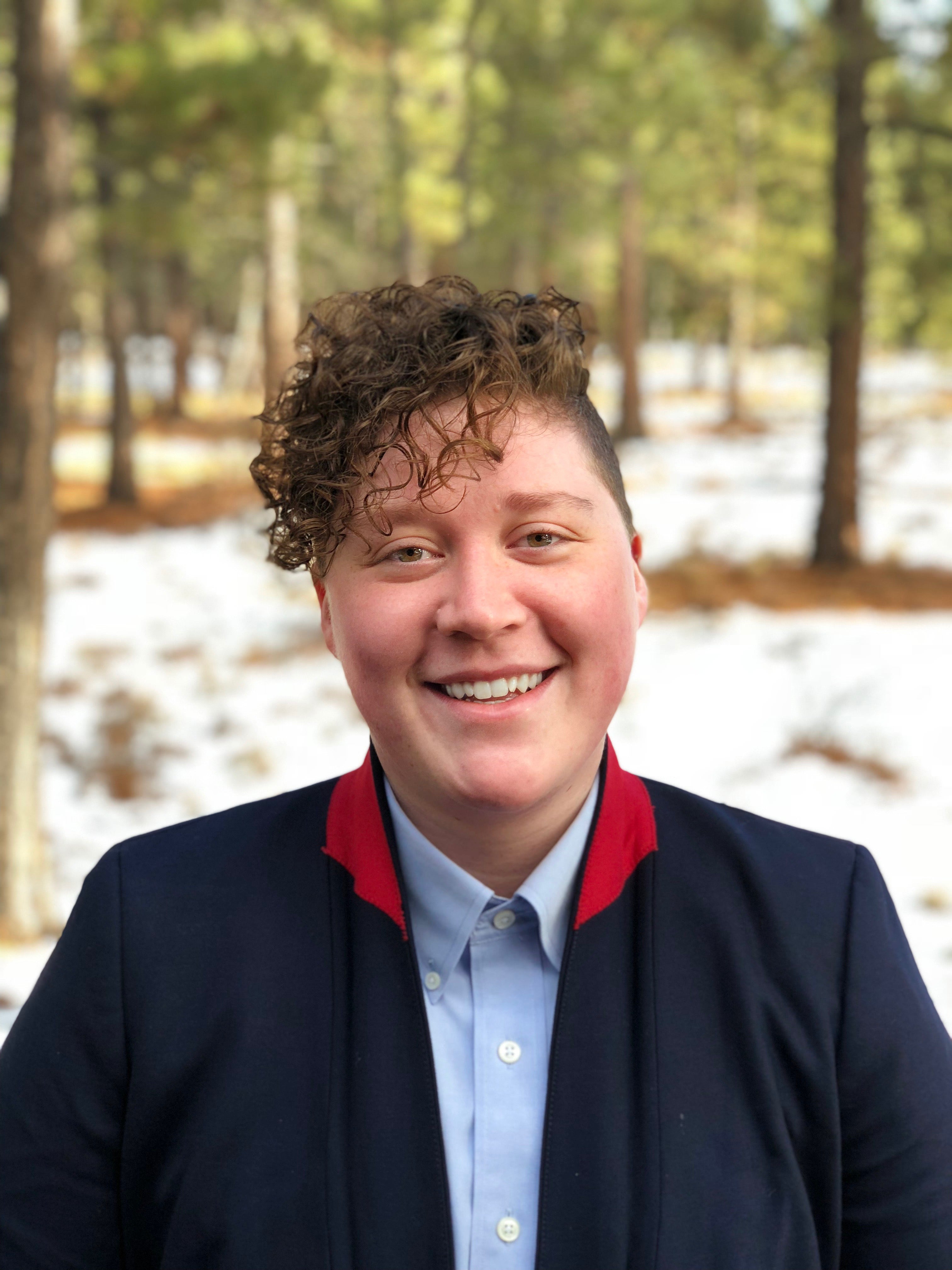In the wake of the flagship Women’s March in January 2017 and the bombshell #MeToo movement that followed in October, women’s issues have experienced a resurgence in society’s collective consciousness.
Hoping to keep the needle moving in the right direction, recent Arizona State University industrial design graduate Lauren Emmerson and current senior Anastasia Miller created Domi Care"Domi" is Latin for "home.", an at-home Pap smear test designed to reduce anxiety associated with the procedure and give women more control over their health without interfering with their work or social life.
“Watching all the women’s marches made us think a lot about the future of women’s health care and reproductive rights,” Miller said. “We wanted to create a product that allows women to have more bodily autonomy and still get the care they need.”
Anastasia Miller
Domi Care was recently awarded first place in the International Housewares Association Student Design Competition. As part of their prize, Miller and Emmerson received $2,500 for their design and an all-expenses-paid trip to the International Home and Housewares Show, taking place March 10–13 in Chicago. There, they will have the opportunity to present their product to 60,000 visitors from more than 125 countries, which could lead to a job in industrial design or the licensing of their product concept.
With Domi Care, women can perform a Pap smear test in the comfort of their own home, and then access the results and dialogue with their doctors through the Domi Care app. All they have to do is order the kit, then when it arrives, take a self-sample — which is a similar experience to using a tampon — then pack it back up and mail it to their doctor.
Lauren Emmerson
They can keep track of the progress of their test with the Domi Care app, which will give them updates along the way to let them know when the lab received their test and when the results are in, as well as what those results are. Throughout that time, they can also use the app to ask questions and talk to their doctor about any concerns.
Professor Mary Margaret Fonow of ASU’s School of Social Transformation studies transnational labor activism, women and work in the global economy and feminist methodology. She is glad to see Miller and Emmerson’s success with Domi Care, especially considering industrial design is a relatively new field for women, and said it shows what can happen when women have a place at the table.
“Innovative ideas relevant to women's lives and experiences have a better chance of coming to the foreground,” she said. “We thrive as a society when all are included.”
Similar at-home tests already exist in Europe but, Miller and Emmerson said, they’re much less user-friendly. They wanted to create a product that was not only easy to use but accurate. That required a lot of research and testing.
“Research was a pretty important part of informing our decision process,” Miller said. “Especially with industrial design, the program at ASU really emphasizes research in the curriculum, and that’s something that’s also true in the industry.”
She and Emmerson started out by conducting group interviews in which they asked women about their experiences with Pap smear tests in order to get a better perspective on the matter and question any assumptions they may have had.

With Domi Care, a woman can perform a Pap smear test in the comfort of her own home, and then access the results and dialogue with her doctor through the Domi Care app. Photo courtesy of Lauren Emmerson
One key insight was that women were not as stressed out about the actual exam as they were about waiting for the results. One woman told them about how she received an email late in the day saying there was an issue with her test results and spent the whole night tossing and turning, imagining the worst. As it turned out, the results were inconclusive and her doctor just wanted her to schedule another appointment to take another test.
That in itself can be a challenge, though, because of how many appointments insurance policies will cover per year.
“A lot of people just opt not to do it,” Miller said. “So that was an area where we really saw an opportunity.”
“With Domi Care, if you’re ever unsure of the test results, you can have an actual dialogue with your physician through the app,” Emmerson added. “And if necessary, you can always just order another test.”
The pair tested a variety of designs, taking into account users’ different body types and needs. They wanted a product women would be familiar with and not afraid to use, which would both reduce stress and instances of user error; that’s how they landed on the tampon-like design.
“A lot of key differentiators between our product and ones that already exist have to do with the research we conducted,” Emmerson said.
They already have a patent pending, so the next step is to license Domi Care, something they hope to do at the upcoming showcase.
“It’s been a very emotional time for a lot of people,” Emmerson said. “There’s a lot of fear and a lot of concern about what the future of women’s health care is going to look like. This was one way for us to feel like we could actually do something about it.”
Top photo: Domi Care prototype. Photo courtesy of Lauren Emmerson
More Health and medicine

Bird flu: Your questions on symptoms, spread and safety answered
Bird flu is no longer only “for the birds.”Infections have expanded beyond wild birds and poultry to a range of animals — from mice to mountain lions, dairy cows to domestic cats, and polar bears to…

Making medicine side-effect free
Many drugs that address medical conditions can come with serious side effects. In drug commercials, the litany of potential side effects is often longer than the benefits being touted. Carl…

Diagnostic research happening at ASU focused on detecting diseases earlier to save lives
It was one of America’s founding fathers, Benjamin Franklin, who may have foreshadowed today’s health care innovation when he quipped the adage: An ounce of prevention is worth a pound of cure.In…




